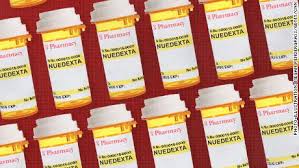Avanir Pharmaceuticals Pays More than $108 Million to Settle Kickback Violations

Just to repeat myself – pharmaceutical and medical device firms face extraordinary risks of enforcement under the False Claims Act. While everyone likes to write and focus on FCPA or anti-corruption risks for global drug and device firms, a relative risk analysis is likely to reveal that False Claims Act risks significantly outweigh FCPA risks (not to diminish FCPA risks, but relatively speaking).
As an example, Avanir Pharmaceuticals recently resolved a kickbacks case involving a scheme to induce physicians to prescribe Nuedexta, an FDA approved treatment of pseudobulbar affect (PBA) which is characterized by involuntary, sudden and frequent episodes of laughing or crying and occurs secondary to a neurologic disease or brain injury.
Avanir agreed to pay $95 million to resolve civil FCA claims to resolve illegal kickbacks claims and misleading marketing of Neudexta to providers in long-term care facilities to induce them to prescribe for dementia, an off-label use.

Avanir entered into a deferred prosecution agreement under which it acknowledged paying physicians to maintain and increase the number of prescriptions they wrote for patients. Avanir agreed to pay a penalty and forfeiture of approximately $13 million.
At the same time, the US Attorney’s Office for the Northern District of Ohio announced the indictment of four individuals, including former Avanir employees, and another physician who prescribed Neudexta. All four were charged with conspiracy to solicit, receive, offer and pay health care kickbacks. Avanir has agreed to cooperate in the prosecution of these individuals.
The US Attorney’s Office for the Northern District of Georgia entered into a DPA with Avanir citing Avanir’s substantial and ongoing cooperation, including capturing and producing text messages from employee cell phones, and the extensive remedial measures taken, including terminating multiple employees at various levels of the organization.

Between October 2010 and December 2016, Avanir paid certain physicians and health care professionals money, honoraria, travel and food to induce them to write prescriptions for Neudexta. Under Avanir’s speaker program, physicians were paid not to present educational information but to conduct social gatherings in order to promote the use of Neudexta.
Avanir also marketed Neudexta to long-term care facilities for treatment of patients suffering dementia, a non-approved use of the drug Neudexta. Avanir positioned Neudexta as an alternative to use of anti-psychotic drugs for dementia. The strategy was successful and used of Neudexta in long-term care facilities increased.
As an example, the government cited the fact that an Avanir employee reported that one doctor, who was also a paid speaker for Neudexta, had entire units of patients on Neudexta at the long-term care facility where he worked, which consisted of dementia patients with behavioral issues.

Avanir also entered into a corporate integrity agreement (CIA) with the HHS-OIG, which required that Avanir implement additional controls around its interactions with physicians and conduct internal and external monitoring of promotional and other activities. In addition, its Board and key executives are required to execute compliance-related certifications.
The government’s enforcement action was initiated after qui tam whistleblower filings against Avanir and relevant individuals. The whistleblowers will receive approximately $18 million of the civil settlement.















2 Responses
[…] Avanir engages in corruption in the US. Not FCPA but FCA violation. Mike Volkov explains on Corruption, Crime and Compliance. […]
[…] Avanir engages in corruption in the US. Not FCPA but FCA violation. Mike Volkov explains on Corruption, Crime and Compliance. […]